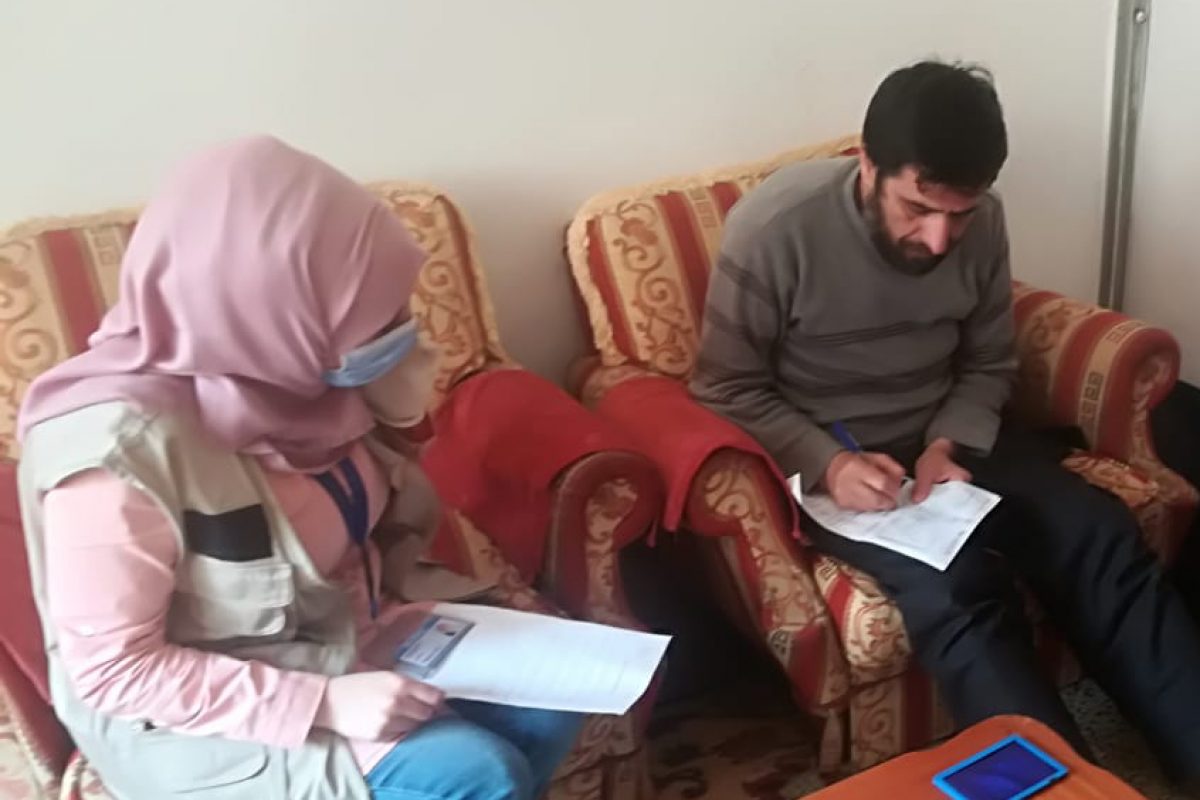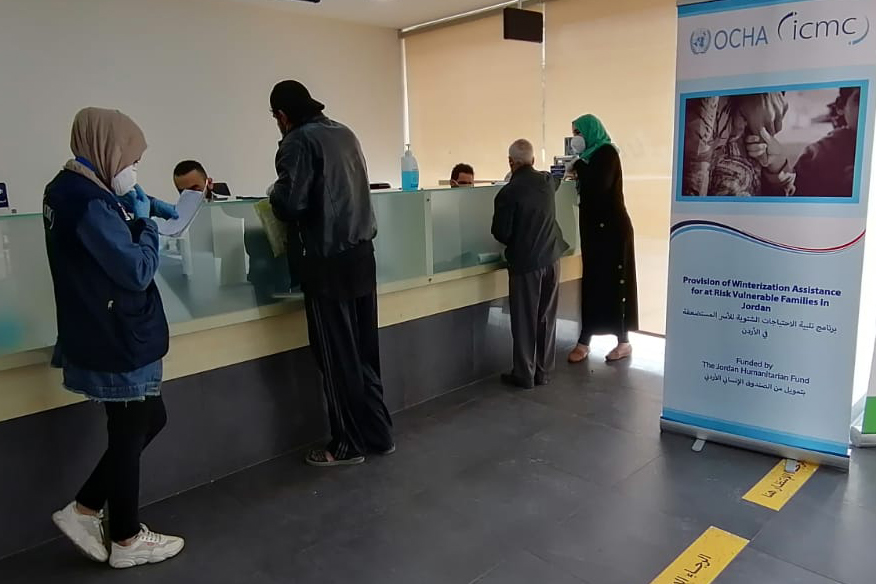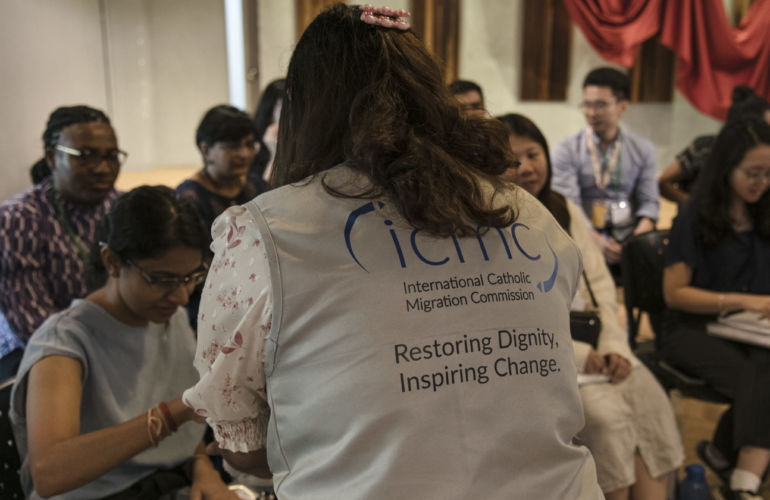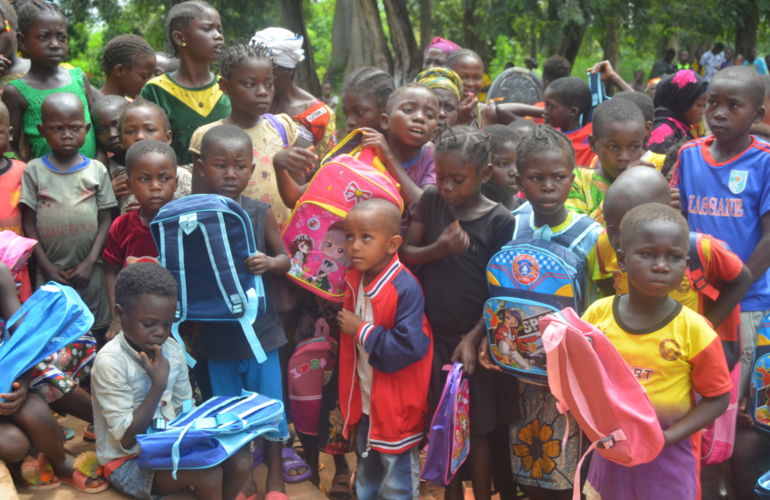ICMC Jordan Adapting Response Tactics and Delivery in the Times of COVID-19

Following Jordan’s nationwide coronavirus lockdown, ICMC staff have adapted their activities to continue to serve vulnerable Syrian refugees. ICMC Jordan’s teams have found new ways to address basic needs of beneficiaries, help families keep peace in their own homes, and provide counseling and educational opportunities for children and adults.
On 17 March 2020, in an effort to contain the spread of the COVID-19 virus in Jordan, the government declared a country-wide lockdown according to which activities in every sector, namely, public, private and humanitarian, were suspended, with the exception of organizations able to work remotely from home.
As a humanitarian organization serving refugees in Jordan, the International Catholic Migration Commission (ICMC) maintained its full commitment to uphold the laws and regulations of the Jordanian government. It also remains committed to protecting the health and safety of its beneficiaries and staff alike. So, to deliver on these commitments, ICMC implemented its contingency plan. During the Corona virus outbreak, ICMC is assisting refugees and vulnerable local people remotely, to the best of its ability, in alignment with the Jordanian government’s regulations.
Accordingly, ICMC’s Basic Needs team conducted a total of 1,759 phone interviews with participants. These interviews included 1,212 outreach and initial needs evaluation interviews and 547 in-depth needs-based interviews to determine the type of assistance and services each family needed.

Similarly, through its protection centers in Mafraq and Irbid, the Protection Team adapted the way it delivered assistance and activities to its participants. ICMC’s services play a vital role in reducing negative emotional reactions, including post-traumatic stress symptoms, confusion, anger, and stress, which can be triggered by prolonged quarantine, fear of infection, frustration, boredom, inadequate supplies and financial loss related to the new coronavirus outbreak. ICMC has been active in providing psychosocial support and counseling sessions to vulnerable communities. The organization’s highly trained team of counselors conducted a total of 520 phone sessions, 227 follow-up sessions with current participants benefiting from ICMC’s psychosocial services and 66 sessions with new participants. In addition, counselors developed psychological first aid materials for all staff and volunteers to deal with stress, fear, and anxiety. ICMC has been one of the first actors in Jordan to provide such assistance during the lockdown.
The protection centers conducted several other phone-based activities with 23 participants. During this period, the Child Friendly Spaces conducted two sessions over the phone for 83 parents and caregivers. These sessions aimed to facilitate activities that parents and caregivers can conduct with their own children of all age groups. Additionally, the team conducted remote awareness-raising sessions with 50 new participants in order to encourage dialogue on protection issues such as gender-based violence, violence in the household, gender roles and power relations within the family, positive coping mechanisms and strategies for self-care.
With regard to the protection center’s literacy activities, the teachers of both the Arabic and English language classes remotely conducted their final course examinations for their students. As a result, 52 participants graduated from ICMC’s literacy classes during this period.
The livelihoods team also shifted to remote implementation of its activities, where possible, through phone and online video communication platforms. The financial literacy and employability course, which covers budgeting, training, and soft skills required by employers, including professionalism and communication skills, was delivered online to 12 participants enrolled in a hybrid automobile maintenance course in Irbid. Similarly, 14 students of the mobile device maintenance course in Mafraq benefited from the course that was conducted remotely. The livelihoods team also resumed their registration of potential students for the upcoming training courses, including Maintenance of Solar and Photovoltaic Systems, Barber and Beauty, and another round of Hybrid Automobile Maintenance, due to the high level of interest and need.
ICMC Jordan continued its internal and external referral operations. Since the beginning of the lockdown period in March, ICMC referred 98 cases in need of urgent medical attention to partner organizations. ICMC’s referral department continued to receive other requests from internal and external sources, primarily for ICMC’s Basic Needs Assistance Program. In total, 347 refugees and families were referred.
ICMC Jordan has intensified its presence on the organization’s Facebook page, where it began to post vital information for refugees and host communities. This included the Ministry of Education’s daily distance learning schedule, material from the National Campaign for Protection against COVID-19 in addition to ICMC Jordan’s original content, which included a series of awareness-raising videos for parents on how to care for their children and manage their anxieties during the lockdown.
ICMC Jordan extended the operational hours of its hotlines for beneficiaries who have any questions or feedback regarding its activities and services. During the lockdown, the basic needs team handled 902 calls received via their hotline from the different Jordanian governorates under ICMC’s coverage. Similarly, the ICMC Jordan’s Protection team handled some 500 calls received via their hotline. The complaint and feedback line also continued to be available to participants.
In response to the Jordanian government’s decision to ease lockdown measures in certain governorates across Jordan, ICMC will continue the distribution of its financial and non-financial assistance to vulnerable families in the governorates of Mafraq and Irbid.


